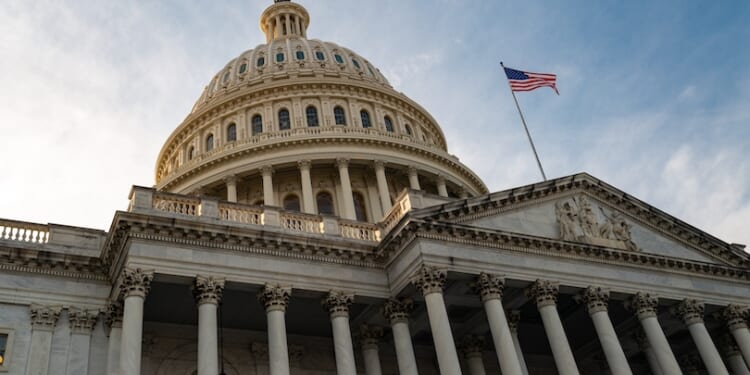WASHINGTON, D.C. (LifeSiteNews) — 51 Republican U.S. senators have signed a letter calling on the Trump administration to restore the ban on mailing abortion pills across state lines, saying it should do so before the complete of any planned review.
The October 9 letter, addressed to Secretary of Health & Human Services (HHS) Robert F. Kennedy Jr. and Food & Drug Administration (FDA) Commissioner Marty Makary, opens by crediting them with “strong commitment to reevaluating the policies” that affect the preborn and “acknowledgment of the concerns surrounding” the abortion pills mifepristone and misoprostol, before highlighting a glaring need in that work.
“Under current FDA regulations, these drugs can be obtained via mail order without meaningful consultation with a medical professional and without any confirmation of who is purchasing them or for what purpose,” the letter explains, “enabl[ing] abortion pills to be obtained by abusers, traffickers, and even minors” at great harm to both the babies they kill and the mothers who suffer “serious medical complications” at a rate 22-times higher than their label acknowledges.
Further, “[u]nrestricted access to abortion pills is systematically undermining states’ rights and violating pro-life state laws,” the senators warn. “Every month, thousands of abortion drugs are shipped into states that have otherwise limited access to abortion after Dobbs, degrading pro-life laws at the state level across the country. Pro-life states have been forced to defend their citizens against radical abortion extremists.”
This is thanks to Biden administration health officials eliminating the requirement that abortion pills be dispensed in person, as well as the Biden Justice Department Office of Legal Counsel’s January 2023 declaration that a provision of the 1873 Comstock Act making it illegal for the United States Postal Service to deliver any “article, instrument, substance, drug, medicine, or thing which is advertised or described in a manner calculated to lead another to use or apply it for producing abortion” did not mean what it said, and abortion pills could be freely mailed, delivered, and received “where the sender lacks the intent that the recipient of the drugs will use them unlawfully,” with unlawful intent essentially declared unknowable.
The U.S. Supreme Court declined to hear a challenge to that decision on standing grounds, and the Trump campaign declared that President Donald Trump would not restore Comstock if elected. Kennedy and Makary have since pledged a critical review of the safety data behind the FDA’s current abortion pill approval, which pro-lifers hope will lead to a reversal of that stance.
The letter’s signatories, however, say that no such review is necessary to act. “Today, your agencies have all the information they need to bring an end to previous Democratic administrations’ abortion drug regulations while a comprehensive review is conducted,” they write.
The senators call on the Trump administration to suspend its “deeply concern[ing]” approval of generic versions of the abortion pill until the review is complete, ensure all existing generics are included in the review, reinstate the in-person dispensing requirement, suspend all distribution of mifepristone as an “imminent hazard,” and withdraw the FDA guidance allowing pharmacies to dispense abortion pills.
Twelve states currently ban all or most abortions. But the unregulated, no-oversight distribution of abortion pills across state lines has become arguably the abortion lobby’s most effective tactic for preserving abortion “access” and is particularly problematic in pro-life states, to which the pills can be sent and taken in complete privacy, without any sign law enforcement can act on.
In November 2022, Operation Rescue reported that a net decrease of 36 abortion facilities in 2022 led to the lowest number in almost 50 years, yet the chemical abortion business “surged” with 64 percent of new facilities built last year specializing in dispensing mifepristone and misoprostol. Citing data from the pro-abortion Guttmacher Institute, STAT says mifepristone “accounts for roughly half of all abortions in the U.S.”
Planned Parenthood Federation of America’s most recent annual report revealed that, almost two years after the U.S. Supreme Court overturned Roe v. Wade and allowed direct abortion bans to be enforced for the first time in half a century, the nation’s largest abortion chain still operates almost 600 facilities nationwide, through which it committed 392,715 in the most recent reporting period. According to the Lozier Institute’s Prof. Michael New, that is a “record number of abortions for the organization and represents approximately 40 percent of the abortions performed in the United States.”

















